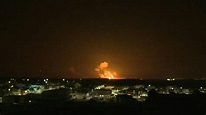Bank of Canada Freezes Rates as Trump’s Tariff Threat Looms Over Economy
Bank of Canada Holds Rates Steady Amid Tariff Turmoil In a widely anticipated move, the Bank of Canada has opted to maintain its benchmark interest rate at 2.75% for the third consecutive time, as trade tensions with the United States intensify ahead of an August 1 tariff deadline. Economists had unanimously predicted the hold, citing mixed economic signals: while employment remains strong, core inflation continues to hover above the Bank’s target. Governor Tiff Macklem emphasized that monetary policy cannot offset the impact of prolonged trade conflicts, reiterating the Bank’s commitment to price stability for Canadians. The decision comes as President Trump threatens sweeping tariffs on Canadian goods, including a potential 35% blanket rate and sector-specific levies on steel, aluminum, and autos. These measures have injected uncertainty into business planning and consumer confidence, with many firms scaling back hiring and investment. Despite the hold, analysts warn that further...




Comments
Post a Comment